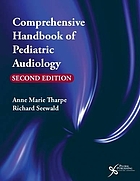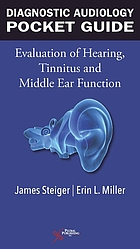Use the links below to learn more about finding your book on the shelf. Once you've found your books you can check them out at the circulation desk with your UM ID card.
Most databases, reference works, and e-journals are restricted to current students, faculty, and staff at the University of Maryland.
In order to access databases and online journals remotely, use Database Finder. When prompted to select a campus, select the option for University of Maryland, College Park and then "Students, Faculty, and Staff". Then log in with your Directory ID, the same username you use for email and other campus services.
Through interlibrary loan (ILL), you can obtain books and articles from journals not held in the University System of Maryland and Affiliated Institutions (USMAI) system. Books, periodical articles, dissertations, microforms, government documents, and technical reports are just some of the types of materials that can be obtained for you.
Graduate students and faculty may also request electronic copies of articles available in the Libraries through ArticleExpress. With ArticleExpress, the Libraries will scan in copies of materials from print and microfilm copies held at College Park and deliver them to you via your e-mail.
Select a link below to start your search for books or other library materials:
The following are titles recently purchased by the UMD Libraries. For additional titles, search UMD Discover.
 Comprehensive Handbook of Pediatric Audiology, Second Edition
by
Anne Marie Tharpe; Richard Seewald (Editor)
Comprehensive Handbook of Pediatric Audiology, Second Edition
by
Anne Marie Tharpe; Richard Seewald (Editor)
 Diagnostic Audiology Pocket Guide
by
James Steiger; Erin L. Miller
This book is a quick reference for audiology students, new clinicians, and any experienced audiologists who want easy access to diagnostic information for rapid review.The first part of this guide covers the routine and special tests audiologists must conduct and interpret in their practices. Next, disorders such as nonorganic hearing loss, middle and inner ear disorders, and systemic disorders are covered with a separate chapter set aside for audiogram examples. The final chapter is devoted to medical referral decision-making criteria.
Diagnostic Audiology Pocket Guide
by
James Steiger; Erin L. Miller
This book is a quick reference for audiology students, new clinicians, and any experienced audiologists who want easy access to diagnostic information for rapid review.The first part of this guide covers the routine and special tests audiologists must conduct and interpret in their practices. Next, disorders such as nonorganic hearing loss, middle and inner ear disorders, and systemic disorders are covered with a separate chapter set aside for audiogram examples. The final chapter is devoted to medical referral decision-making criteria.
Browsing the library shelves by call number ranges is one way to locate information on a topic.
Library of Congress Call Numbers related to Hearing and Speech Sciences include:
| Call Number Range | Subject Heading | |
| BF 251 | Hearing, Psychology | |
| BF 455 | Psychology of Language and Speech | |
| BF 723 .C57 | Child Psychology Communication | |
| LC 4028 | Language and Learning | |
| P 118 | Early Language Acquisition/Emergent Lexicon | |
| P 217 - P 259 | Phonetics | |
| QM 251 - QM 265 | Anatomy and Physiology of Speech | |
| QM 507 | Human Anatomy - Ear | |
| QP 86 .K46 | Physiology of Aging | |
| QP 306 | Physiology of Voice and Speech | |
| QP 461 - QP 471 | Neurophysiology - Hearing - Physiological Acoustics | |
| RC 423 | Communication Disorders | |
| RC 424 | Stuttering | |
| RC 424.7 | Articulation Disorders | |
| RC 425 | Aphasia | |
| RF 110 - RF 285 | Otology - Diseases of the Ear | |
| RF 290 - RF 294 | Audiology - Hearing Disorders | |
| RF 294.5 | Audiology - Special Tests and Methods | |
| RF 298 - RF 310 | Hearing Disorders - Instruments | |
| RF 510 - RF 514 | Diseases of the Larynx, Vocal Cords. Instrumentation | |
| RF 540 | Rehabilitation - Speech | |
| RJ 496 - 497 | Language and Communication Disorders in Children |
